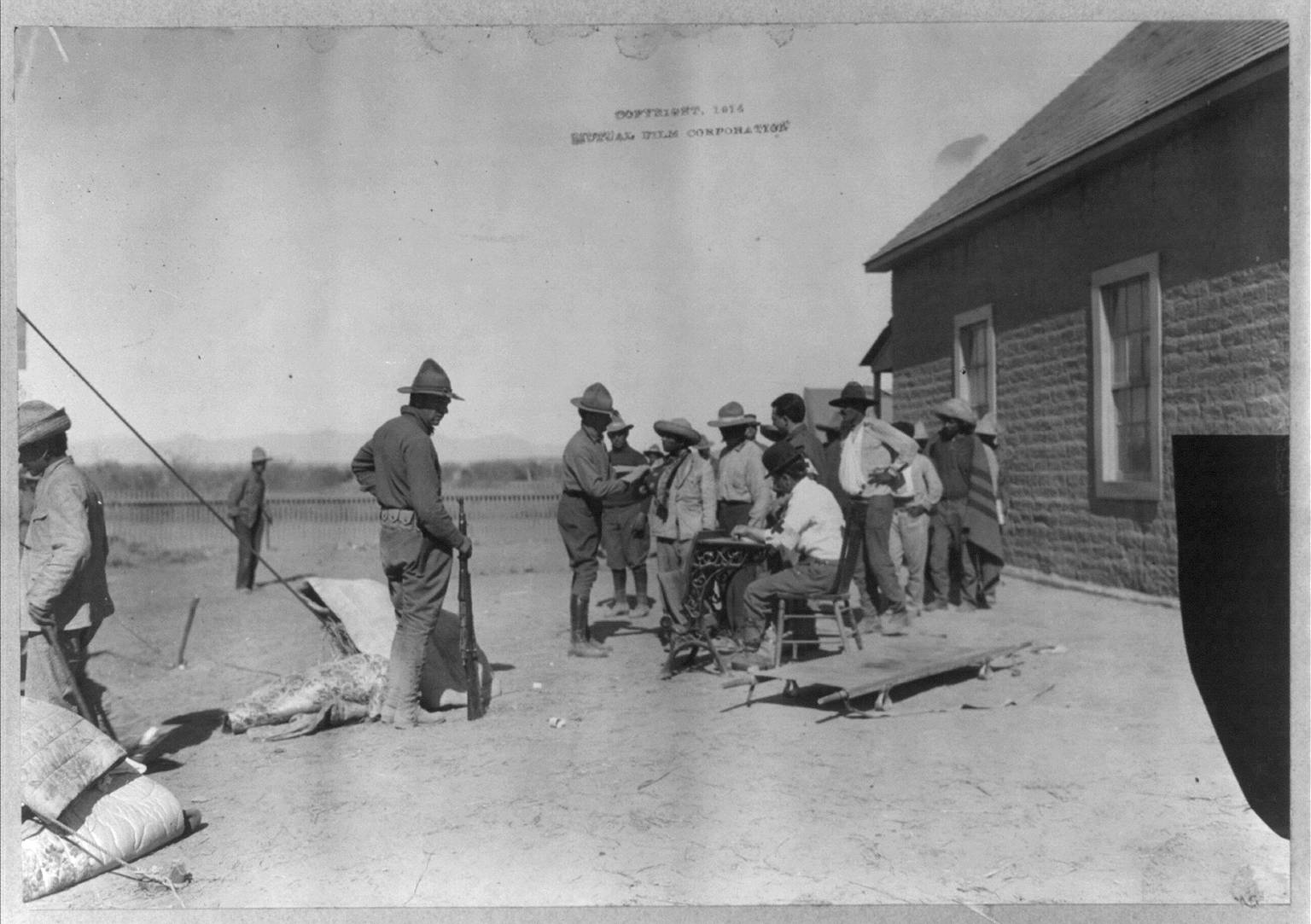The Mexican Revolution on the U.S. Border

The Mexican Revolution on the U.S. Border
Wednesday, February 15, 2016
5:30 pm | Flowers Hall 230
Dr. Paul Hart serves as moderator for a special panel exploring the impact of the Mexican Revolution on U.S. immigrant and ethnic communities in the Southwest. Dr. Andrew Urban explores the plight of Chinese immigrants who worked for Gen. John Pershing’s Punitive Expedition, and Dr. Raúl Ramos examines the roles played by Americans of Mexican heritage in the civil war in their ancestral homeland.
Full presentation descriptions
Dr. Andrew Urban | Servants and Refugees: The 1916-17 Punitive Expedition and its Labor Histories
This talk explores the history of the “Columbus refugees,” a group of 524 Chinese men whom immigration officials granted entry into the United States from Mexico in February 1917. After having worked for Brigadier General John J. Pershing’s Punitive Expedition as servants, cooks, and merchants during the army’s pursuit of Francisco “Pancho” Villa, these Chinese men feared that they would be the target of reprisals from local Mexican communities. With the Punitive Expedition’s retreat back across the border, they sought asylum in the United States – an appeal that was complicated and contentious due to the federal government’s Chinese exclusion policies. This talk uses the Columbus refugees as a case study to examine the longer history of how service work performed on behalf of the American military (whether in the Civil War-era South, Mexico in 1916, or Iraq today) has been treated by the US government as grounds for asylum.
Raúl Ramos | Fighting the Mexican Revolution from the American Side of the Border: Mexican Americans Enter the Fray
This essay analyzes Mexican American participation in the war effort as a form of American political participation. In other words, the idea that American politics should include various forms of engagement with the Mexican Revolution. While the Flores-Magón brothers were an inspiration for Chicano activists, they saw themselves as exiled Mexicans. This essay is interested in Americans of Mexican heritage who were firmly invested on the American side, but still involved in the politics of the Mexican Revolution.
Biographies
Andrew Urban is an Assistant Professor of American Studies and History at Rutgers University, New Brunswick. His forthcoming book, Brokering Servitude (NYU Press, 2017), examines how immigration policies shaped labor markets for domestic service. His next project will explore the history of Seabrook Farms, a frozen foods agribusiness and company town in southern New Jersey that recruited interned Japanese Americans, guest workers from the British West Indies, and European refugees during the 1940s. Andy’s writing has appeared in the Journal of Asian American Studies, Journal of Policy History, Gender and History, and American Studies.
Raúl A. Ramos is an Associate Professor in the department of History at the University of Houston where he teaches 19th century Chicano/a history, Texas history and history of the American West. His first book, Beyond the Alamo: Forging Mexican Ethnicity in San Antonio, 1821-1861 (University of North Carolina Press, 2008), examined Mexican responses to American expansion into San Antonio and Texas in the early 19th century. The book received the T.R. Fehrenbach Award from the Texas Historical Commission and the 2011 Publication Award from the San Antonio Conservation Society.
Paul Hart is an Associate Professor of History, Associate Director of the Center for International Studies, and former Jesse H. Jones and Mary Gibbs Professor of Southwestern Studies at Texas State University. He is the award-winning author of Bitter Harvest: The Social Transformation of Morelos, Mexico, and the Origins of the Zapatista Revolution, 1840-1910 (University of New Mexico Press, 2005) and is currently preparing a biography of Emiliano Zapata.
This program is sponsored by the Center for the Study of the Southwest, with support from the Center for International Studies and the Department of History at Texas State University.
